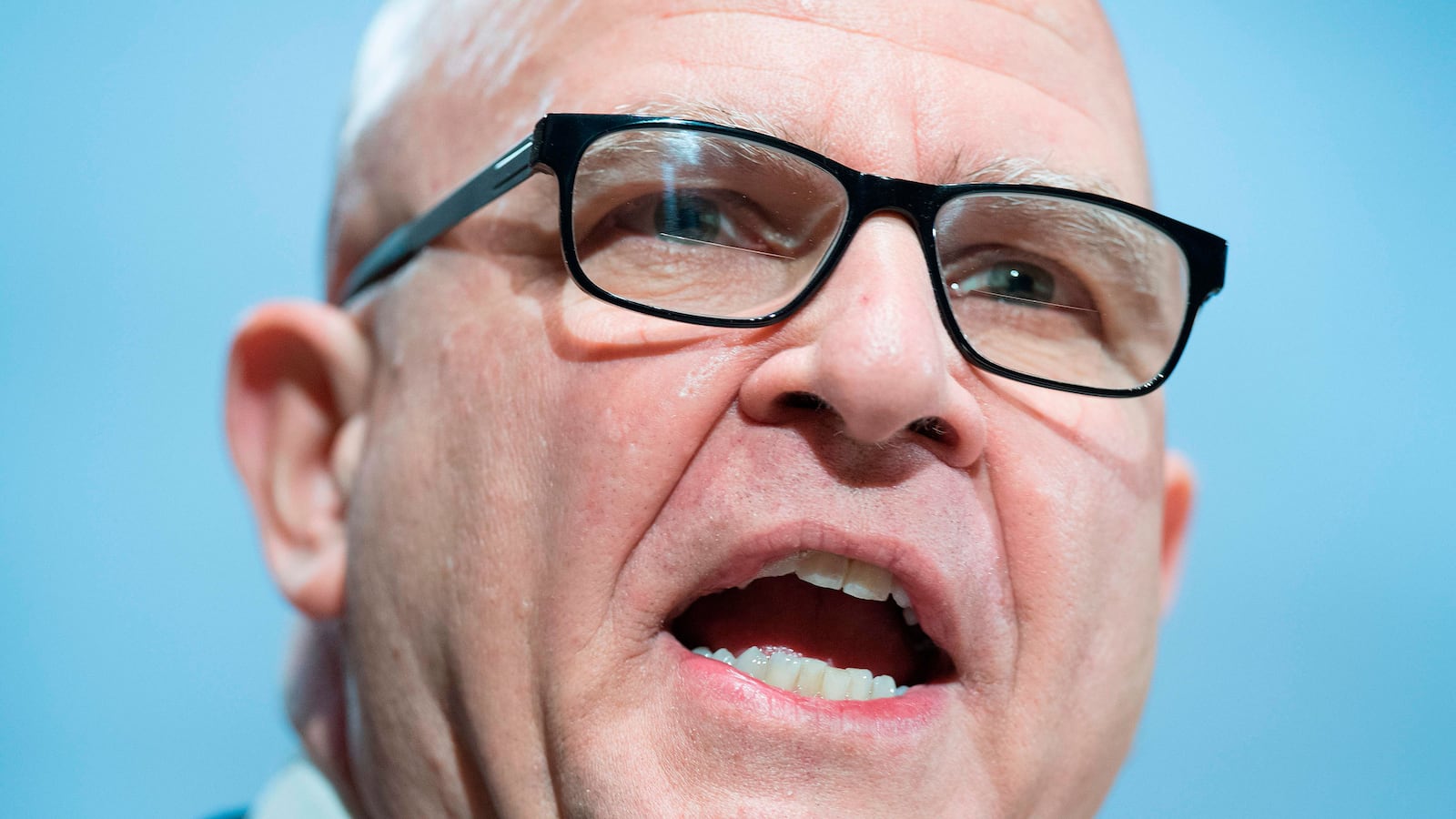If H.R. McMaster is on his way out of the White House, he’s going out with two middle fingers raised and pointed in the direction of the Kremlin.
“Russia is also complicit in [Syrian dictator Bashar] Assad’s atrocities,” McMaster, President Trump’s national security adviser, said Thursday during an appearance at a discussion of the Syrian civil war held at the U.S. Holocaust memorial museum.
His voice raised, McMaster used harsher and more moralistic language than his boss does in characterizing Russia’s geopolitical influence, and unequivocally blamed the Kremlin for “the abhorrent nerve agent attack” on a former double agent, Sergei Skripal, and proposed “serious political and economic consequences” for Russian aggression.
“We believe that Russia was responsible for this attack, and we call on the Russian government to answer all questions related to this incident, and to provide full information to the OPCW [Organization for the Prohibition of Chemical Weapons]. No nation—Russia, China, or anybody else, any other nation—should be using chemical weapons and nerve agents,” McMaster said, following what critics have called a belated Wednesday statement casting blame on Moscow for the attack on Skripal.
McMaster’s brief remarks, lasting under 20 minutes, came as the Army three-star general is the subject of furious speculation that Trump will soon fire him and install hardliner ex-ambassador John Bolton atop the National Security Council. His capstone achievement thus far has been a Russia-and-China-centric security strategy that has been conspicuously out of step with Trump’s rhetoric and actions toward both countries.
“Russia has done nothing to encourage Assad to ensure delivery of humanitarian aid, to respect ceasefires and de-escalation agreements or to comply with U.N. Security Council Resolution 2254’s call for a U.N.-monitored political process,” McMaster said.
Those remarks suggested that Trump got suckered during his 2017 rounds of personal diplomacy with Vladimir Putin. In November, Trump and Putin issued a joint statement firmly pledging support for what is known as the 2254 Process—though critics considered it a cover for Moscow to continue ensuring support for its client, Assad—that “took note” of Assad’s “recent commitment to the Geneva process and constitutional reform and elections as called for under UNSCR 2254.” And that followed July’s acquiescence from Trump and just-ousted Secretary of State Rex Tillerson signing onto a Russia-driven process centered around achieving ceasefires that McMaster said Russia was not respecting.
Before lighting into Russia, McMaster savaged Iran’s sponsorship of Assad, which is far more comfortable territory for the Trump administration.
“It is time to impose serious political and economic consequences on Moscow and Tehran. Assad should not have impunity for his crimes, and neither should his sponsors,” an animated McMaster said, hours after the administration placed new economic sanctions on entities associated with the St. Petersburg-based “troll farm” that impersonated Americans on social media to spread Russian propaganda during the 2016 election.
After drawing a moral connectivity between the victims of Assad and those of Adolf Hitler, McMaster ended his 19-minute speech, leaving many to wonder if it will be his last as national security adviser.





